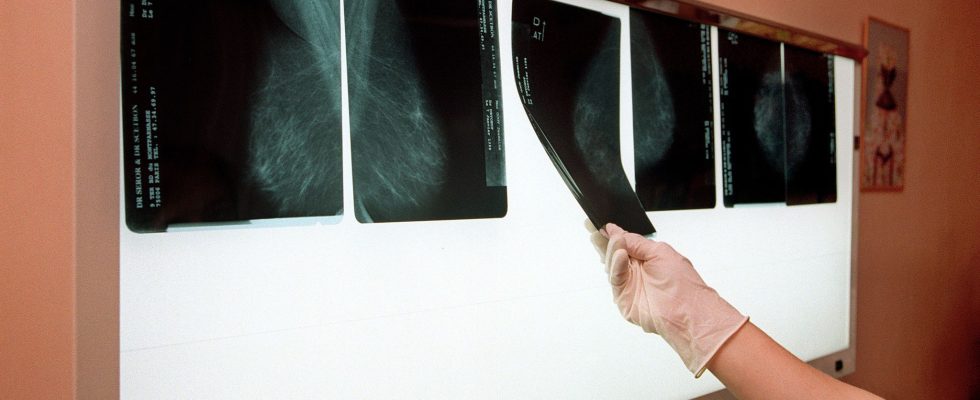Screenings for breast cancer and colorectal cancer are still experiencing low participation in France, and the Covid pandemic has, in the first case, not helped anything, according to two studies published on Tuesday July 11 by Public health France.
Faced with the most frequent and deadliest cancer for them, French women aged 50 to 74 are offered, every two years, a clinical breast examination and a mammogram, followed by a second reading by an expert if the first is normal or a diagnostic check-up in the event of a suspicious image.
But “France is struggling to achieve (the) European objective of at least 70% participation in screening, notes a study published in the weekly epidemiological bulletin of SpF. Participation is around 50% and has been declining for ten years, with, in addition, repercussions from the Covid crisis.
After rising until 2012 and peaking around 52%, it fell to 48.5% in 2019. Against the backdrop of the pandemic, it fell to 42.6% in 2020, before rising to 50.6% in 2021. “If the participation for the year 2021 partly offset the deficit for the year 2020, that for the period 2020-2021 remains lower than that for the period 2018-2019”, note the authors of this study.
In addition to the impacts of Covid on access to care, it is “also possible that the underlying downward trend in screening will continue”, according to them. Several hypotheses could explain this trend: “doubt about the usefulness of screening”, “consequence of less attractiveness”, “medical desertification”… It is however complicated to have a complete overview because mammograms are also done outside organized screening .
Fall in the number of screening tests
For colorectal cancer, the second leading cause of cancer death in France, screening is based on a test to detect occult blood in the stool, offered every two years to French people aged 50-74. Since the generalization of the program, “the participation rate is low, around 32%”, notes a specific study.
In 2020-2021, with the health crisis, the number of screening tests dropped during the first confinement, colonoscopies after a positive test were delayed, etc.
The participation rates for colorectal cancer screening do not ultimately seem “to have dropped significantly during the pandemic”, but “remain too low compared to European recommendations”, underline the researchers. While the consultation of a general practitioner to collect the screening kit seems to constitute “a brake”, new delivery methods were introduced in 2022 (possibility to order your kit online or to collect it from a pharmacy).
